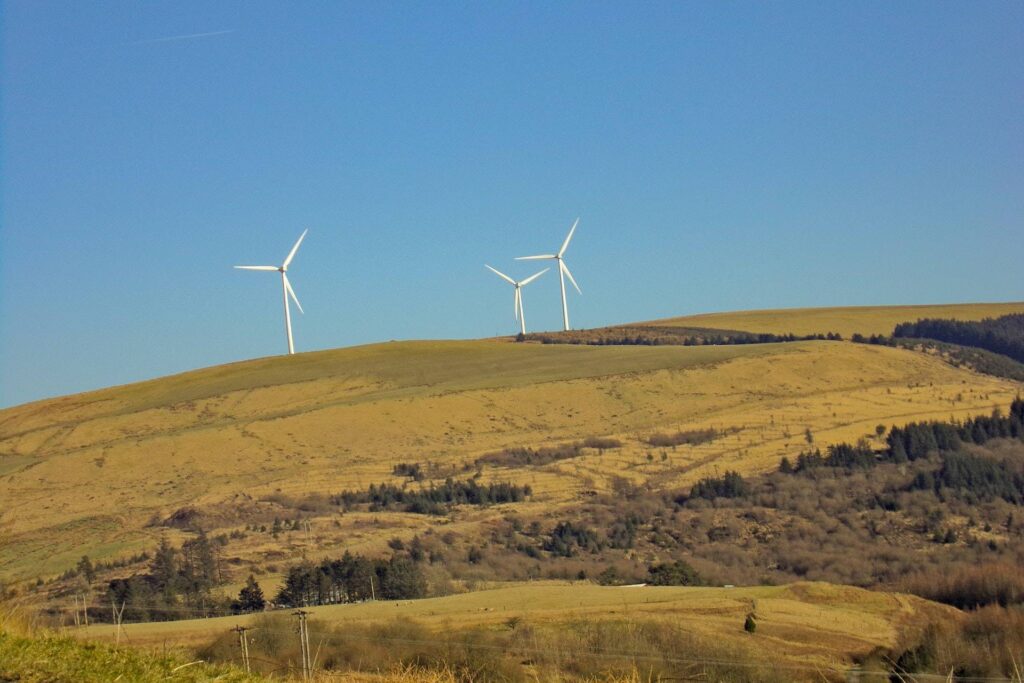The CCC’s annual emissions reduction progress report for Wales is out. What’s the state of play, and how might any lessons affect wider UK progress?
The fundamental message
The CCC’s latest round up says that with an ambitious target to reach net zero greenhouse gas emissions by 2050, action on decarbonisation in Wales must now accelerate.
While, welcomely, the First Carbon Budget (2016-2020) has been achieved, Wales is not yet on track to meet its targets for the second half of this decade and beyond, says the CCC.
The country has however taken some positive steps, for example the recent decision to cancel all major road projects on environmental grounds and the focus ministers have placed on skills, jobs and public engagement for the net zero transition via several public engagement campaigns and a Skills Action Plan.
But the CCC still feels the Welsh Government is not using its policy powers to full effect. The challenge is this; the middle of the Third Carbon Budget is only five years away. Urgency is paramount.
By then, Wales should have reduced emissions by 39% compared to pre-pandemic (2019) levels. This means policy action in all sectors across the economy is now badly needed.
Key recommendations
There are plenty of interesting recommendations that will affect Welsh businesses, and could indeed influence wider UK policy towards net zero.
For a start, the CCC has identified a need to set out how Wales’s pathway for reducing emissions in the waste sector will be achieved – including policies, funding/investment needs and provision, and any dependencies or implications for other parts of the UK.
The waste industry is a good example of why alignment is key; it’s huge. Various estimates put its value near £25 billion with a massive environmental and emissions impact. The UK generated 222.2 million tonnes of total waste in 2018, with England responsible for 84% of the UK total.
On transport, the CCC says there is a need to monitor EV uptake in Wales and assess whether there are opportunities for further policies and incentives to drive adoption forward more quickly than through the ZEV mandate alone.
This should also consider opportunities to maximise emissions savings and deliver co-benefits for Welsh people.
There is also progress to come on strategic alignment. The CCC says work with local authorities to develop an agreed framework of what aspects of net zero central and local government are responsible for and how these will be coordinated is needed.
This should lead to a clearer shared understanding of roles and responsibilities, which can be communicated across local government.
Buildings
Another massive recommendation covers the places people live and work in Wales. The CCC wants to see a detailed plan for decarbonising buildings and reaching net zero targets, incorporating data from Local Area Energy Plans.
The plan should include estimates of investment requirements and yearly targets for deployment of low carbon heating and energy efficiency measures. It should identify policy areas which are under Welsh Government control and those which require coordination with the UK Government.
Power
The CCC is demanding that enabling initiatives for energy infrastructure are taken forward at pace and necessary policy changes are implemented in Wales, to deliver a decarbonised and resilient power system by 2035.
Wales’s spatial planning regime should, says the CCC, adequately balance local impacts on natural capital with the need for sufficient electricity network capacity, delivered in a timely fashion, to accommodate expansion of renewable electricity generation capacity in line with UK Government targets and Welsh Government ambition.
Again, this is vitally important. The UK’s renewable energy businesses and their supply chain will be keen to see how such expansion will create business opportunities and growth potential.
What comes next?
Wales Online reports that the Welsh Government is pondering the report before announcing the next steps.
A Welsh Government spokesman said: “We welcome the report and will now carefully consider its conclusions before publishing our response. On publishing our final statement for Carbon Budget One in December we highlighted we had lived within our first carbon budget and met our interim target for 2020.
“We also recognised the need to take more action ourselves and by others to meet future challenging targets. The Climate Change Committee has highlighted the further steps we are taking, such as the recent roads review, but also where we can do more.”
And the South Wales Industrial Cluster (SWIC) has produced a Clean Growth Plan. If implemented reports hint that the policies therein would achieve net zero industries in south Wales by 2040, equating to a 40% reduction of current Welsh CO2 emissions.
The concepts would also retain 113,000 existing jobs and potentially create new skilled jobs, while unlocking £30bn investment opportunities in the region.
Certainly then, Wales doesn’t seem lacking in ambition. The challenge, as with most net zero work, is pacing and scaling up sufficiently, along with a decent set of measurement metrics to ensure a sound direction of travel.

